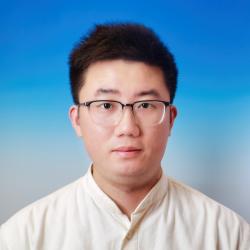Title: Deep Learning for Physical Layer Communications: From Model-Driven to Foundation Models
时间:2024.12.25 星期三 9:30-10:30
地点:无线谷1306会议室
Abstract
Around the world, the adoption of 5G wireless networks is rapidly increasing, which has led to exciting global research and development activities aimed at formulating 6G as the next-generation mobile communication network. 6G is set to revolutionize the evolution of wireless from “connected things” to “connected intelligence,” enabling interconnections between humans, things, and intelligence. Model-driven DL approaches construct the network topology based on known physical mechanisms and domain knowledge, making them less reliant on training data and requiring a shorter training time. In this talk, we will discuss the recent advancements in model-driven deep learning for physical layer communications. Then, we will present a forward-looking vision, physical layer foundation models. This approach seeks to unify the design of different transceiver modules by focusing on their common foundation, i.e., the wireless channel. We propose to train a single, compact foundation model to estimate the score function of wireless channels, which can serve as a versatile prior for designing a wide variety of transceiver modules. Several open issues for future research are also highlighted.
Short Biography
HE Hengtao: Dr. He is currently a Research Assistant Professor under the scheme of VPRDO at the Hong Kong University of Science and Technology (HKUST). He received the Ph.D. degree in information and communications engineering from Southeast University, China, in 2021. From 2018 to 2020, he was a Visiting Student with the Department of Electrical and Computer Engineering at the Georgia Institute of Technology, Atlanta, GA, USA. From 2021 to 2023, he worked as a Post-Doctoral Fellow with the Department of Electronic and Computer Engineering at HKUST. His areas of interests currently include millimeter-wave/THz communications, ultra-massive MIMO, and machine learning for wireless communications. He won the first prizeof the Natural Science Award of the Chinese Institute of Electronics in 2023. He was the recipient of theBest Ph.D. Thesis Award of the Chinese Institute of Communications and Jiangsu Province in 2022 and Top 2% Scientists Worldwide 2023 by Stanford University. He is an editor of the IEEE Wireless Communications Letters.


